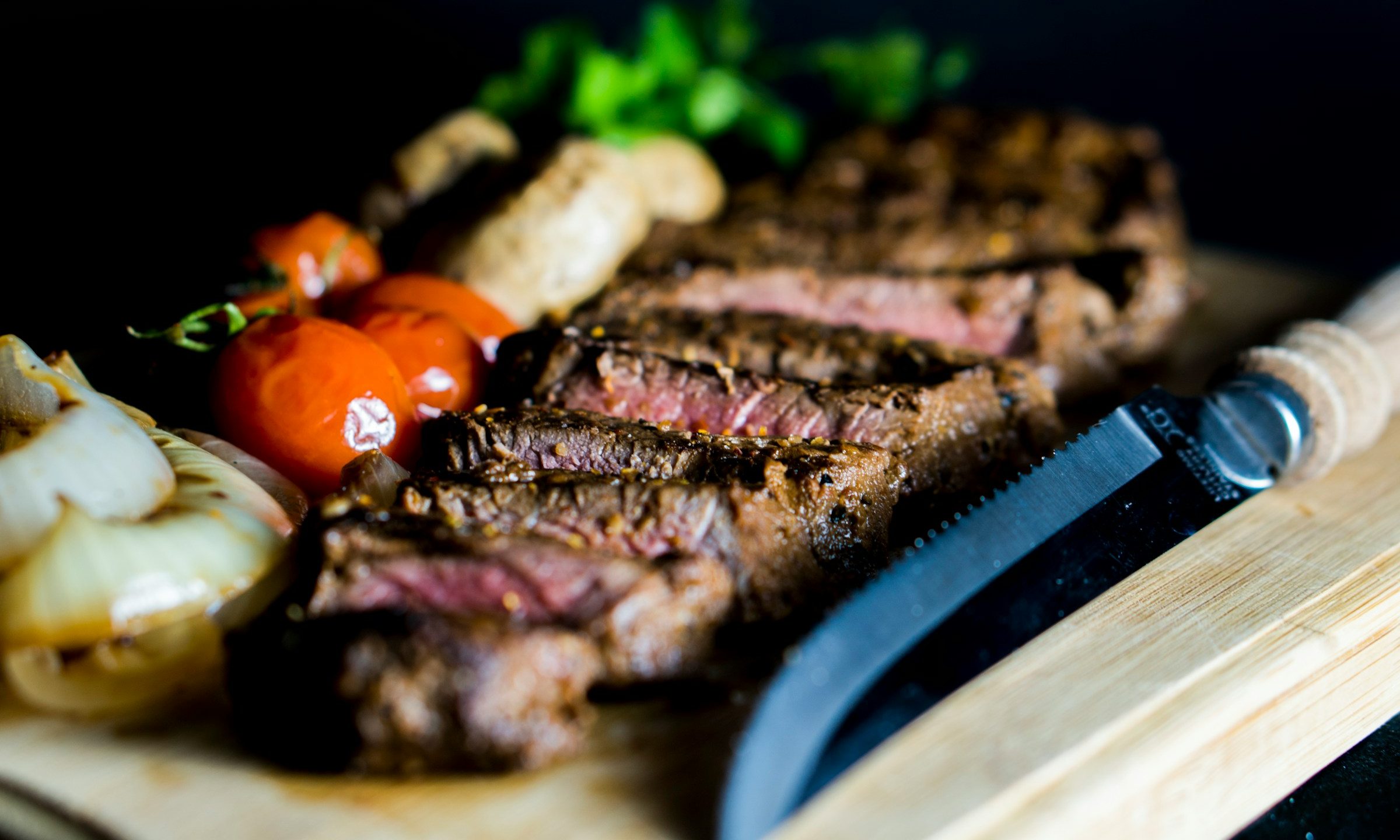
There’s just something about a big, perfectly marbled, wonderfully fatty steak. Meaty, juicy, seared to absolute golden perfection, and satisfying in a way no other dish will ever be, hearty steaks like ribeyes are mealtime magic. Unfortunately for us, though, big, fatty steaks aren’t exactly the healthiest option for every meal of the day. As with most everything that tastes wonderful, these steaks are best enjoyed in moderation. So, what do we do in the meantime? How can we satisfy our cravings for a delicious steak and remain conscious of keeping our arteries clean and happy? The answer is simple – reach for a leaner, less fat-filled steak.
We know, we know, leaner steaks have a somewhat nasty reputation for being dry and flavorless. Unfortunately, that reputation is not without due cause. But, if you pick the right cuts and know how to best prepare them, lean cuts of steak can actually be spectacularly flavorful and surprisingly juicy. Not only that but lean steaks are packed with minerals like zinc and iron, which boost immunity and promote healthy cell growth. They’re also a wonderful source of essential B vitamins, such as niacin, riboflavin, vitamin B6, and vitamin B12.
Sirloin tip-side steak

Sirloin tip side steak, also known as breakfast steak or round sirloin tip side steak, comes from the round roast, which is cut from the hind legs and rump of the cow. Because this is a heavily used and muscular part of the animal, these steaks can be somewhat tough if not prepared correctly. This problem is easily solved with a great marinade, though, which will work to both flavors and tenderize a sirloin tip-side steak.
The USDA recommends a 3.5-ounce serving of sirloin tip-side steak, which has roughly 200 calories, 5.4 grams of fat, and 39 grams of protein.
Lean top round steak

Also known as a London Broil or Family Steak, the lean top round is lean but delicious in flavor. Cut from the hip and rump area of the cow, this steak is easily found in grocery stores and is a relatively budget-friendly piece of meat. We love a lean top round broiled under high heat after a swim in a good marinade.
The USDA recommends a 3.5-ounce serving of lean top round steak, which has roughly 240 calories, 7.6 grams of fat, and 36.9 grams of protein.
Eye of round steak

The eye of round steak is the third leanest cut of steak on the market. It comes from the round primal cut, which is found in the rump area of the cow. Because this cut is so muscular, it can be chewier than other cuts, which is what makes it so affordable. As with other lean cuts of steak, though, a good, citrusy marinade will combat that chewiness and give the eye round a great flavor. This steak is particularly delicious when cooked on the grill.
The USDA recommends a 3.5-ounce serving of eye round steak, which has roughly 276 calories, 7 grams of fat, and 49.8 grams of protein.
Brisket

We’re cheating a bit here, but for good reason. While brisket isn’t necessarily a traditional steak per se, it is a shockingly lean and delicious cut of beef. Cut from the breast/pectoral area of the cow; brisket is every barbecue fan’s favorite fare. After a long stay in the smoker, this lean cut of beef becomes melt-in-your-mouth tender and packed with the most exquisite smokey and charred flavor. It may take some additional time and care, but after you’ve smoked your own brisket, you’ll wonder how you ever survived without it.
The USDA recommends a 4-ounce serving of brisket, which has roughly 140 calories, 2 grams of fat, and 24 grams of protein.
Tenderloin/Filet mignon

Arguably the most popular steak cut on the market, lean or otherwise, the tenderloin is startlingly tender for being so low in fat content. The tenderloin itself is a long, whole-muscle cut that comes from beneath the ribs, next to the backbone and can be sliced into individual steaks. Steaks cut from the tips of the tenderloin are known as filet mignon.
The tenderloin’s naturally tender consistency makes it a relatively low-maintenance cut to prepare. Making this steak delicious doesn’t require a lot of added labor. There are many ways to cook a great piece of tenderloin, but we recommend searing these steaks in a cast iron pan to give them a beautifully golden and crisp crust.
The USDA recommends a 3.5-ounce serving of tenderloin, which has roughly 153 calories, 2 grams of fat, and 25 grams of protein.



